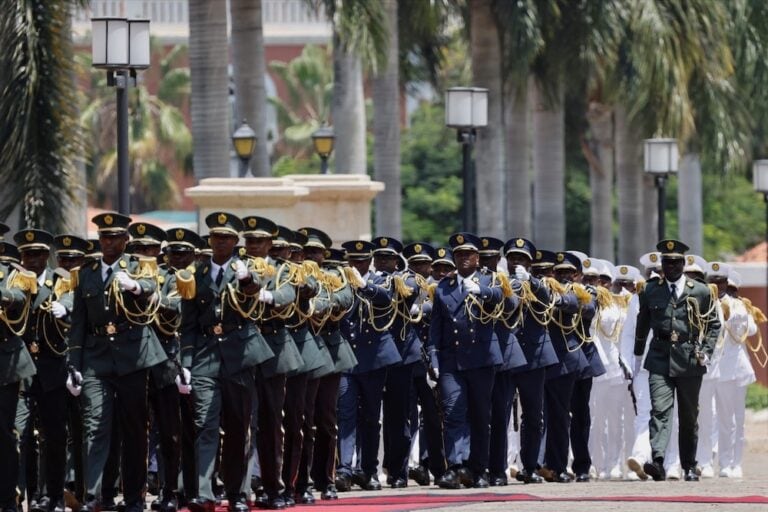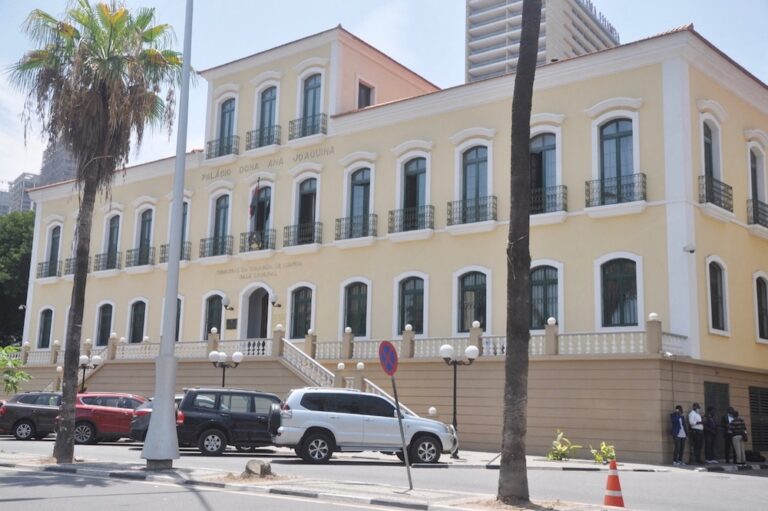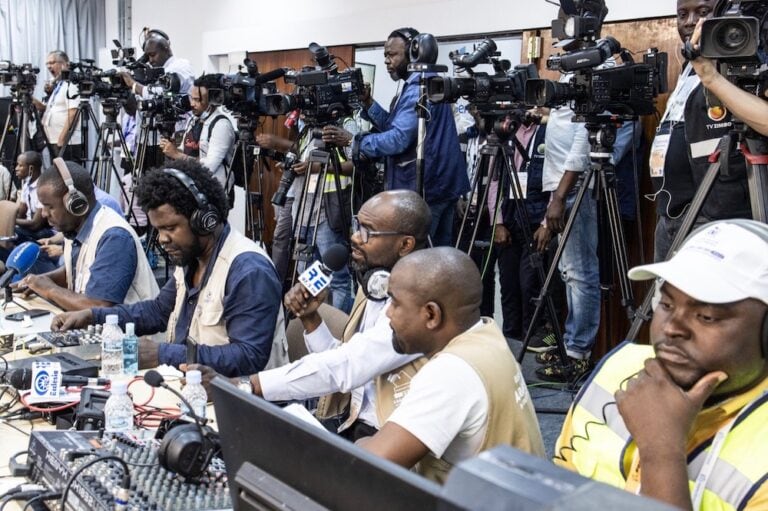**For background, see IFEX alerts of 28 November 1996 (Casimiro) and 19 January 1995 (de Mello)** (RSF/IFEX) – Below is the complete text of a letter sent by RSF to the President of Angola expressing concern at the lack of progress in the investigations of the murders of two journalists in 1995 and 1996. The […]
**For background, see IFEX alerts of 28 November 1996 (Casimiro) and 19
January 1995 (de Mello)**
(RSF/IFEX) –
Below is the complete text of a letter sent by RSF to the President of
Angola expressing concern at the lack of progress in the investigations of
the murders of two journalists in 1995 and 1996. The Portuguese version of
the letter is appended.
Jose Eduardo dos Santos
President of the Republic of Angola
Office of the President
People’s Palace
Luanda, Angola
20 January 1998
Mr. President,
On the eve of the third anniversary of the death of Ricardo de Mello, editor
of the first independent Angolan newspaper, “Imparcial Fax”, RSF, an
international organization for the defense of press freedom, denounces the
impunity enjoyed by the assassins of journalists in Angola and the rigorous
control exercised by the state on the country’s independent media.
According to our information, on 18 January 1995, 38 year old Ricardo de
Mello was shot in front of his home with two bullets of the same calibre
used by the presidential guard. An inquest was started. The bulletin
“Imparcial Fax”, published five days a week since in February 1994, was
subjected to constant harassment by state agents from the time it was
launched. The journalist had received telephone death threats on numerous
occasions. According to his wife, Arminda Mateus, De Mello was actively
warned “to stop writing about military affairs”.
This death, whose perpetrators have not yet been punished, seemed to have
created a dangerous precedent. On the night of 29 or 30 October 1996,
Antonio Casimiro, a correspondent with Angolan Popular Television, was
killed in his home by unidentified assassins. According to Dom Paulino
Madeka, Bishop of Cabinda, the crime was committed by five police officers
led by a civilian. While the authorities accuse the Cabindan independence
movement, (FLEC), FLEC, in turn, says the Popular Movement for the
Liberation of Angola (MPLA) is responsible. According to some local
journalists, Casimiro had been threatened several weeks before by a state
official in Cabinda. In an interview the following day with the Voice of
America radio station in Washington, USA, the Minister of Social
Communication, Hendrik Vaal Neto, condemned the assassination but refused to
comment further due to “his lack of precise information on the case.” Two
inquiries have been opened: one to determine the identity of the assassin,
the other to evaluate whether the official accused by the journalists bears
any responsibility.
To date, none of the inquiries opened by the Angolan authorities into these
two cases has brought results. RSF considers that the shadow cast around
these two assassinations tends to develop a “culture of impunity” which does
considerable harm to the freedom of the press in Angola and allows the
repetition of these odious acts.
RSF requests information as to the current state of the inquiries into the
assassinations of Ricardo de Mello and Antonio Casimiro. We ask you to use
your influence to assure that these inquiries are completed as soon as
possible and that those responsible are brought before the courts. We remind
you that Angola has ratified the International Covenant on Civil and
Political Rights and is a signatory to the African Charter on Human Rights,
adopted on 12 July 1981, both of which guarantee the free flow of information.
We await your response with all due respect.
Robert Menard
Secretary General


